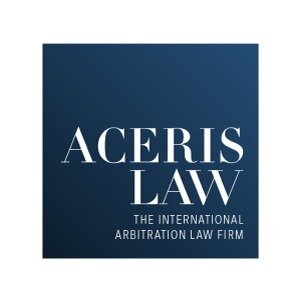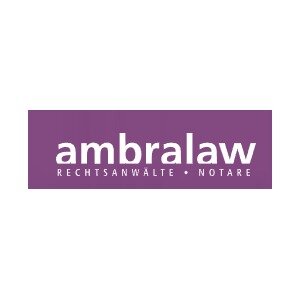Best Nonprofit & Charitable Organizations Lawyers in Switzerland
Share your needs with us, get contacted by law firms.
Free. Takes 2 min.
Or refine your search by selecting a city:
List of the best lawyers in Switzerland
About Nonprofit & Charitable Organizations Law in Switzerland
Switzerland is known for its strong tradition of nonprofit and charitable organizations that operate alongside governmental efforts to address social issues. The legal framework governing nonprofit and charitable organizations in Switzerland is defined significantly by the Swiss Civil Code. Organizations can exist in several forms, including foundations and associations. Swiss law focuses on ensuring that these organizations operate transparently and fulfill the purposes for which they were established. The country provides a conducive environment for these entities, thanks to its favorable legal and taxation systems that encourage charitable activities.
Why You May Need a Lawyer
Engaging legal assistance can be crucial in several situations when dealing with nonprofit and charitable organizations in Switzerland. These include:
- Establishing a new nonprofit organization, where understanding legal requirements for registration, governance, and compliance is essential.
- Handling complex tax issues, especially regarding tax exemptions and deductions available to nonprofit entities.
- Navigating the dissolution or restructuring of an organization, ensuring legal compliance throughout the process.
- Addressing issues related to governance, including conflicts of interest within the board of directors or management.
- Ensuring the organization complies with Swiss anti-money laundering regulations and other sector-specific laws.
Local Laws Overview
The key aspects of local laws relevant to nonprofit and charitable organizations in Switzerland include:
- Swiss Civil Code: Provides the basic legal structure under which associations and foundations are established and managed.
- Taxation: Charitable organizations can benefit from tax exemptions, but they must prove their public benefit status and comply with stringent requirements.
- Financial Reporting: There are specific requirements for financial transparency, including annual audits for larger organizations.
- Foundation Supervision: Foundations are subject to supervision to ensure their purposes are being fulfilled effectively.
- Anti-Money Laundering Laws: Organizations may need to comply with these regulations to prevent illicit uses of funds.
Frequently Asked Questions
What types of nonprofit organizations can be established in Switzerland?
In Switzerland, the primary types of nonprofit organizations are associations and foundations. Associations are membership-based, whereas foundations are asset-based entities created to benefit a specific cause.
How do I form a nonprofit organization in Switzerland?
To form an association, a group of individuals must agree on a common purpose and draft statutes. For foundations, assets must be allocated to a specific purpose. Registration requirements vary depending on the organization type and size.
Are nonprofit organizations in Switzerland eligible for tax exemptions?
Yes, nonprofit organizations can be exempt from taxes if they serve a qualified public benefit purpose. They must apply to the cantonal tax authorities to obtain these exemptions.
What governance structures are required for nonprofit organizations?
Associations typically have a general assembly and an executive committee, while foundations have a board of trustees. Governance practices must be transparent and in line with their foundational documents.
Can foreign individuals establish a nonprofit organization in Switzerland?
Yes, foreign individuals can establish nonprofit organizations in Switzerland. However, understanding local laws and regulations is critical, which may necessitate seeking legal counsel.
What are the reporting requirements for nonprofit organizations?
Nonprofit entities must adhere to financial reporting standards, including submitting annual financial statements if they meet specific criteria such as size and revenue.
How are foundations regulated in Switzerland?
Foundations are regulated by supervisory authorities to ensure adherence to their stated objectives and proper management of assets.
Do nonprofit organizations face any specific challenges in Switzerland?
Some common challenges include maintaining compliance with legal requirements, attracting funding and volunteers, and demonstrating impact and accountability to stakeholders.
Can nonprofit organizations engage in commercial activities?
Yes, nonprofit organizations can engage in commercial activities if they align with the organization's purposes. However, any profit generated should be used for the organizational objectives.
What legal protections exist for donors to nonprofit organizations?
Donors benefit from legal protections including transparency requirements and the ability to deduct donations from taxes, provided the recipient organization is recognized as a public benefit entity.
Additional Resources
If you need legal advice or further information about nonprofit and charitable organizations in Switzerland, consider consulting the following resources:
- Swiss Federal Supervisory Authority for Foundations
- Commercial Registry for Associations
- Cantonal Tax Administration Offices for tax-related inquiries
- Pro Bono Legal Services, which may be available through university law clinics or non-governmental organizations
Next Steps
If you believe you need legal assistance for issues related to nonprofit and charitable organizations in Switzerland, consider taking the following steps:
- Identify specific legal needs related to your organization, whether it's formation, taxation, compliance, etc.
- Research and reach out to legal experts specializing in nonprofit and charity law in Switzerland.
- Prepare necessary documents and information to discuss with a lawyer, such as organizational goals, financial statements, and existing legal documents.
- Engage with the legal expert for initial consultation to determine the scope of services and potential costs involved.
Lawzana helps you find the best lawyers and law firms in Switzerland through a curated and pre-screened list of qualified legal professionals. Our platform offers rankings and detailed profiles of attorneys and law firms, allowing you to compare based on practice areas, including Nonprofit & Charitable Organizations, experience, and client feedback.
Each profile includes a description of the firm's areas of practice, client reviews, team members and partners, year of establishment, spoken languages, office locations, contact information, social media presence, and any published articles or resources. Most firms on our platform speak English and are experienced in both local and international legal matters.
Get a quote from top-rated law firms in Switzerland — quickly, securely, and without unnecessary hassle.
Disclaimer:
The information provided on this page is for general informational purposes only and does not constitute legal advice. While we strive to ensure the accuracy and relevance of the content, legal information may change over time, and interpretations of the law can vary. You should always consult with a qualified legal professional for advice specific to your situation.
We disclaim all liability for actions taken or not taken based on the content of this page. If you believe any information is incorrect or outdated, please contact us, and we will review and update it where appropriate.
Browse nonprofit & charitable organizations law firms by city in Switzerland
Refine your search by selecting a city.
















